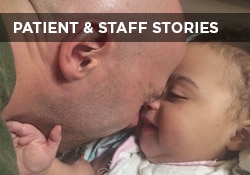This website uses cookies so that we can provide you with the best user experience possible. Cookie information is stored in your browser and performs functions such as recognising you when you return to our website and helping our team to understand which sections of the website you find most interesting and useful.
Patient Privacy – HIPAA
The Health Insurance Portability and Accountability Act (HIPAA) has brought unparalleled pressures on U.S. healthcare organizations to protect identifiable health records wherever they are, both written and oral.
Nonetheless, in the middle of noisy corridors and waiting rooms of hospitals and healthcare facilities, critical information needs to be quickly transferred from physician to nurse to family members for the care of the patient. In the Emergency Rooms, curtained cubicles offer limited visual privacy and no auditory confidentiality.
Protecting Conversations
Privacy policies are not only supposed to protect your patients’ medical records, but should also protect conversations, both casual and formal. In the halls and open door rooms of a hospital, speech privacy is at risk for patients and families who are vulnerable during a health crisis.
Also, patient privacy needs are not absolute. Their feelings of isolation, need to not be anonymous but to be known by those who are caring for them, and equal need for respect of their personhood makes privacy a complex issue that can’t just be resolved by government legislation.
Ultimately, the culture of your healthcare organization that determines the “sound” of your hospital and the kind and quality of privacy that is assured.
Resources
Here are some resources you can use to help increase patient privacy in your hospital:
- The Role and Perception of Privacy and its Influence on the Patient Experience whitepaper by Dr. Susan E. Mazer
- Noise in Hospitals interview with Dr. Susan E. Mazer
- Addressing Hospital Noise video
- Patient Privacy: When it Matters – Dr. Mazer chronicles the history of privacy within the cultural norms of the time and then moves to the current narratives from patients who share their own stories.
For a Research Bibliography on noise, sleep, pain management, and other topics, contact us.
Also, check out these other searchable research databases.
If you’d like to have Dr. Susan E. Mazer speak at your next meeting or conference about improving privacy, contact us.










